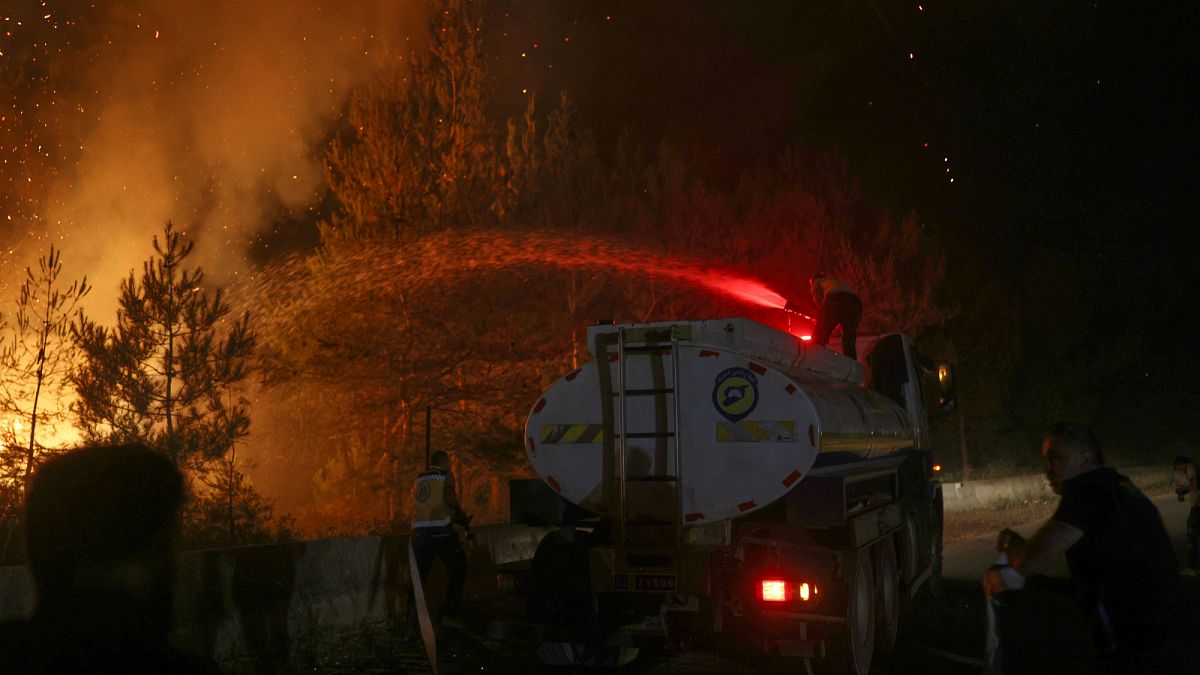

In a world where climate challenges are becoming increasingly apparent, nations and communities are taking decisive steps towards resilience and transformation. This article weaves together several emerging developments focused on environmental sustainability across Europe and beyond, highlighting both the challenges posed by climate change and the proactive solutions being implemented globally.
Recently, Europe has experienced a dramatic convergence of extreme weather events, with severe storms hitting the Balkans and intense wildfires erupting in Türkiye, Spain, and France. These events follow a significant heatwave, underscoring the interconnectedness of climate phenomena. While the immediate impacts are clear, with damage to infrastructure and natural landscapes, the broader question remains about the role of climate change in these occurrences. The heightened intensity and frequency of such events are driving calls for stronger climate adaptation measures in affected regions.
Amid these challenges, voices from influential global leaders are emphasizing the need for urgent and equitable climate actions. Under the visionary leadership of Pope Leo XIV, the Vatican has embarked on a transformative journey towards sustainability. The Pope’s recent celebration of the first ‘green Mass’ marked a symbolic commitment to environmental stewardship. Additionally, plans are underway to establish a solar farm that will propel Vatican City towards becoming the world’s first carbon-neutral state, setting an inspirational precedent for religious and governmental institutions worldwide.
Meanwhile, in the Netherlands, agricultural practices are under scrutiny as the country grapples with the balance between food production and environmental conservation. Dutch farms have been identified as significant contributors to nitrogen emissions, which pose a threat to both local ecosystems and the broader goals of the European Union’s green initiatives. This situation exemplifies the complex challenges faced by policymakers and farmers alike, as they work towards achieving a harmonious coexistence of agriculture and nature conservation.
On an industrial scale, the global struggle with plastic waste continues to necessitate coordinated efforts for sustainable solutions. Recent discussions highlight the importance of developing a comprehensive global instrument to combat plastic pollution. Such an initiative would be bolstered by innovative financing mechanisms and consistent measurement and reporting standards, allowing countries to efficiently implement effective waste management infrastructure. These steps are crucial for addressing one of the most pervasive environmental issues of our time and encourage a collaborative approach to remediation and innovation in waste reduction.
In a significant move towards wildlife conservation, authorities in England, Scotland, and Wales have declared plans to phase out the use of lead in ammunition, addressing the harmful effects of this toxic metal on the environment. Starting in 2026, the ban will gradually be implemented over three years, a decision warmly received by environmental groups who have advocated for this change. While concerns about the availability of suitable alternative ammunition remain, the commitment exemplifies progress towards safer ecological practices that prioritize both human and wildlife health.
Across these diverse contexts, it is encouraging to witness a growing global recognition of the urgency required to address environmental challenges. As communities adapt to climate and environmental realities, the collective efforts towards sustainable practices continue to shape a future poised for resilience. The spirit of innovation and cooperation evident in these developments serves as a testament to humanity’s capacity for positive transformation, even amidst the mounting challenges presented by nature’s unpredictable forces.
Source: {link}
